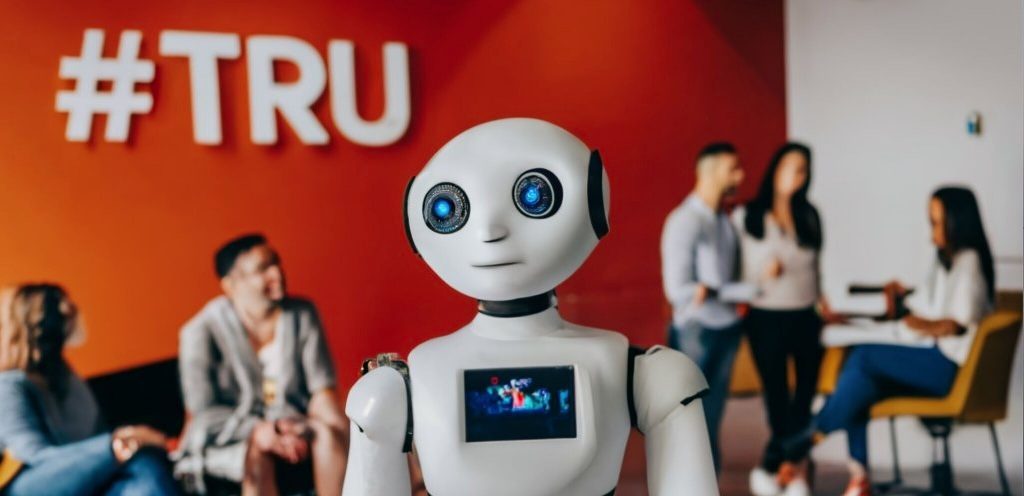For its 10th edition, Trumontreal, the “unconference” on recruitment, chose to deviate from its original concept (“no speaker, no PowerPoint presentation, no badges”) to offer participants an accelerated update on personal data handling and the potential of AI in recruitment. Let’s review the event.
The trainer Sandrine Théard, founder and organizer of the event, could not have chosen a better meeting place: Trumontreal took place this year at the Centre de recherche informatique de Montréal (CRIM), a reference for the deployment of AI in business. In the opening presentation, the founder of Trumontreal, explained the change in format to the 130 participants gathered in the main hall:
“This year, we’re doing things a little differently. Why? Because there’s something that is changing lives, and that’s AI. It’s coming to the market. I think it’s essential today, as recruiters or HR professionals, to understand what it’s about. Moderators will be here to bring you content, whereas in previous years, they were more in a group facilitation mode.”
The founder of Trumontreal firmly believes in the “evangelization” mission of AI in recruitment, specifying that she advocates for “ethical and responsible” use.
“We have the responsibility to know, to understand [the potential and implications of] AI. When social networks arrived, it was a bit our role to explain to our clients and employees how it works. And not pretend it doesn’t exist. Today, it’s the same with AI: we have to wonder how we can use it in companies and with our collaborators.”
The initiator of Trumontreal explains her desire to stay at the forefront of the AI parade.
“Personally, I don’t want my clients to be more educated than me in artificial intelligence. If we want to keep our strategic role, we must be educated on the matter.”
A Theme that Resonates
After talking to some participants around the coffee dispensers, the chosen theme for 2023 evidently struck a chord. After being absent from the last editions, a lady working in governance revealed that she specifically returned to the event to get updated on AI and better understand the law on personal data protection.
Recruiters Martha and Angelina, who meet and socialize at the unconference each year, argued that the topic of AI was also essential for them.
“The recruitment sector is behind,” noted Martha. “The adoption of this technology has been much faster in education, sales, or marketing. Now it’s our turn to take ownership of the tool and understand how it can help us in our work.”
These recruiters were well-served with a robust program, including introductions to the basics of AI with HR technology expert Jean-Baptiste Audrerie and to Law 25 on data protection by lawyer Cynthia Chassigneux, founder of CHX Avocat and former administrative judge of the Commission d’accès à l’information du Québec.

In Defense of the “Human” Factor
Beyond the heard discourse (“AI is here, we have to deal with it”), the discussions that animated the day still revealed a divide between supporters of “everything AI” – embodied for the occasion by the friendly founder of AppyHere, Martin Mathe – and a category of recruiters – let’s say – whether skeptical, skeptical, or simply critical of this technology.
Addressed before the start of the workshops, Inès – a recruiter of French origin from the IT field – expressed great skepticism about the effectiveness of current algorithms, whether in a recruitment platform like LinkedIn or elsewhere.
During the discussion “Recruiter, Candidate, and AI, together and against all?” moderated by Karim Mabrouky of Beneva, recruiter Julien-Pier Boisvert aptly recalled that the data from the last forty years in IT recruitment were tainted by gender and cultural biases in a sector dominated by “white men.”

The 10th edition of Trumontreal made people laugh and smile (mainly through a video of a very expressive baby during Pierrich Plusquellec’s conference on “Can AI Feed Our Emotional Intelligence”), but it also sparked some heated debates. Above all, it advanced the thinking on the deployment of AI in a fundamentally “human” sector, which is human resources.




